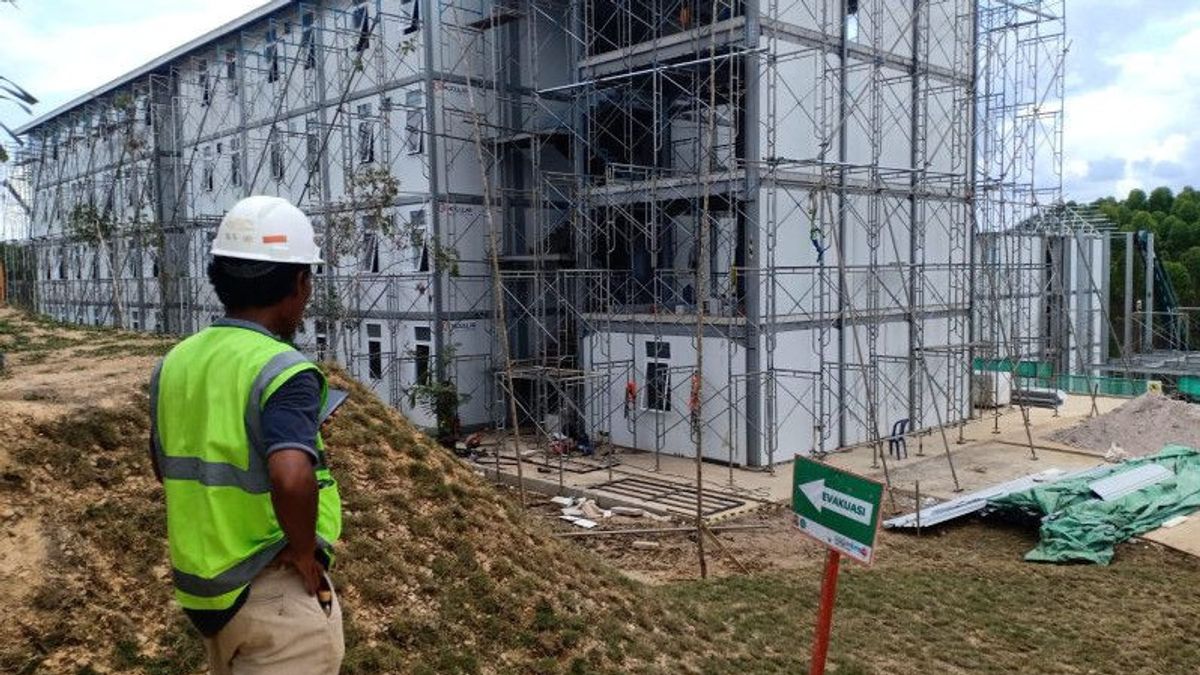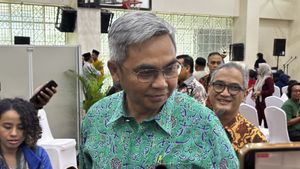PENAJAM PASER UTARA - Pemerintah mempercepat menyelesaikan proyek perumahan untuk pekerja konstruksi yang bekerja membangun berbagai infrastruktur di Ibu Kota Nusantara (IKN) agar mereka mendapatkan tempat tinggal yang layak.
"We want to humanize workers who work in IKN and for that, proper housing must be built," said Head of the Commitment Making Officers Unit of the Kalimantan II Housing Provision Agency Ari Nugroho, quoted by Antara, Sunday, November 6.
It is said that IKN project workers will work on such as the construction of state palaces, the DPR RI building, ministries, state institutions, and ministerial houses that will present nearly hundreds of thousands of workers from outside the Penajam Paser Utara area.
The building, which is a modular building, consists of several 4-story towers to accommodate about 16,000 workers. "It will be added to the meeting room and other supporting buildings," he said.
The housing of construction workers built in the capital city of Nusantara, East Kalimantan, will later carry the concept of Green Buildings such as by being able to catch as many rainwater and solar heat as possible using solar panels.
The construction of IKN construction workers, he said, was a directive from President Joko Widodo at the March 10, 2022 Limited Cabinet Meeting (Ratas) which requested that the implementation of development should avoid new crowds at IKN locations.
Infrastructure development in IKN will trigger massive mobilization of construction workers (TKK) and estimate the number of construction workers who will be involved in IKN development as many as 233,000 people.
It is said that the construction of early-stage construction workers is intended as a pilot for housing for workers and supporting staff who need to be provided by construction actors.
"The still-needed mobilization requires housing for TKK along with social facilities and large-scale public facilities," he said.
To speed up development, a flexible construction system is used, which can be dismantled/transferred with a small amount of material wasted or continued to use for the long term with functions according to needs.
"The construction of this raw material is 100 percent domestically produced and in the construction process it produces less waste," said Ari.
The English, Chinese, Japanese, Arabic, and French versions are automatically generated by the AI. So there may still be inaccuracies in translating, please always see Indonesian as our main language. (system supported by DigitalSiber.id)













